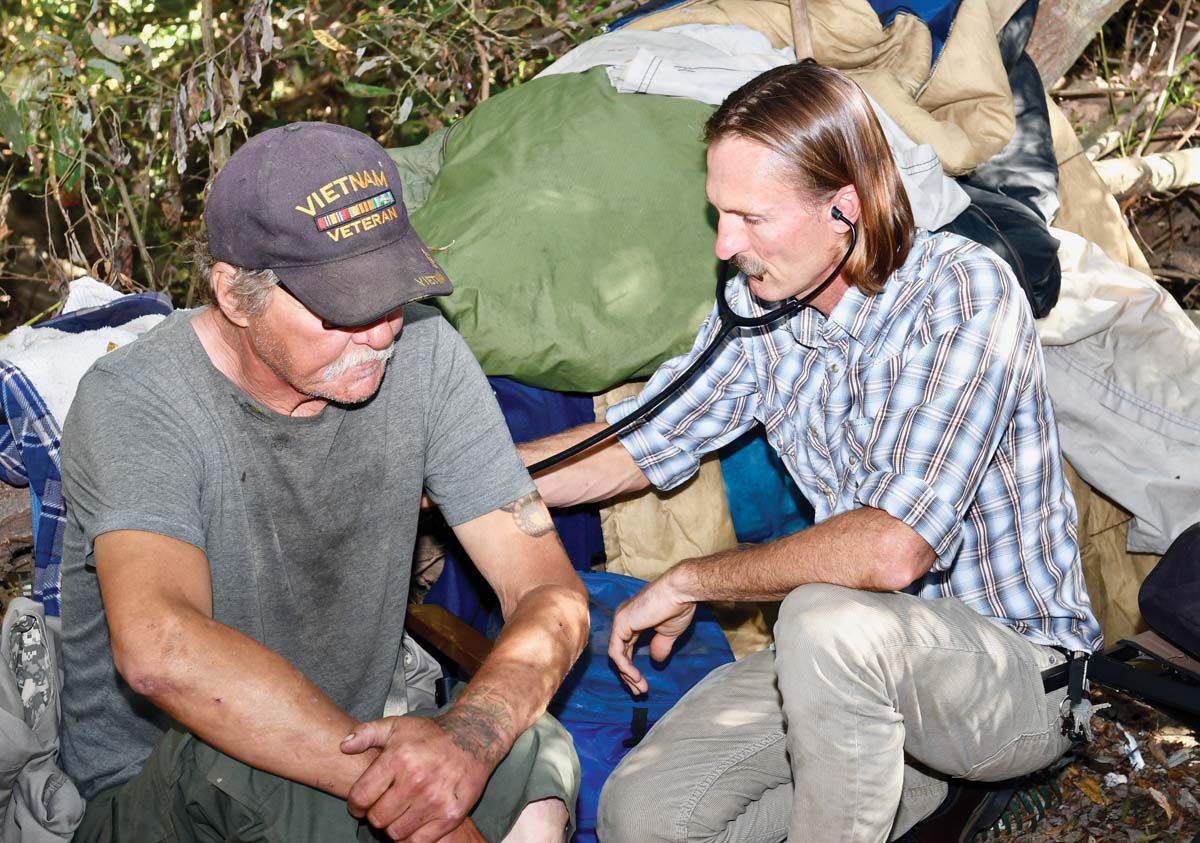The very first Malibu City Council special meeting on homelessness, held 13 months ago in late January 2020, resulted in several plans of action that hit dead ends. The idea of creating a temporary homeless shelter at the vacant courthouse in the Civic Center was nixed by the State Judicial Council. The idea of designating part of the Zuma Beach parking lot for an overnight safe parking program failed to get zoning approval from city council after some public pushback in May 2020.
However, a plan to find out what other cities have successfully done about homelessness resulted in the inspiration to model a program after one in Laguna Beach. It’s called an Alternative Sleeping Location (ASL)—a solution developed after a class-action lawsuit filed against Laguna by the ACLU.
Malibu Homeless Working Group member Paul Davis explained that if Malibu had an ASL, all residents would be better protected—giving the homeless somewhere off the street to sleep would enable sheriff’s deputies to enforce the city’s no-camping laws.
Sheriff’s have not been able to arrest homeless people for sleeping in public areas since December 2019, when the U.S. Supreme Court elected not to hear the Martin v. Boise case. This left in place the Ninth Circuit Court of Appeals ruling that it is unconstitutional to punish a homeless person for sleeping or camping on public property if they are not provided with another place to go. The appeals court rules over the nine westernmost states, which are currently bound to observe this decision.
Local law enforcement representatives said they feel as though their hands are tied.
“The No. 1 rule of policing is to protect the constitutional rights of the public and individuals, and we don’t challenge court rulings [like Martin v. Boise] in policing,” Lt. Jim Braden of the Lost Hills/Malibu Sheriff’s Station said.
“Having some form of shelter here would allow my people to go out and enforce the no camping laws,” Braden added. “Without a shelter, our hands are tied.”
Davis pointed out that an ASL would improve Malibu fire safety and restore access to parks and the library to residents. The proven results of the Laguna ASL include the disappearance of trash and homeless encampments in that city; and more homeless individuals obtaining permanent housing.
The proposed Malibu ASL would have 30 “beds” (exercise mats on the floor), and only take individuals with established ties to Malibu committed to finding permanent housing and enrolled in the program. There would be a fenced “green zone” around the ASL. People staying there would receive basic care as well as training in life and job skills, with the goal of moving them into their own places as soon as possible.
Davis proposed a two-year ASL pilot program with periodic assessments, estimating the cost at $600,000 per year, mainly for salaries and modular buildings.
The four-hour-long meeting included various agencies and public comments—many containing misinformation—from more than 30 residents.
Council unanimously approved five separate motions made by Mayor Mikke Pierson:
Motion 1: To get staff recommendations on designing and fielding a questionnaire to Malibu residents on homeless issues.
Motion 2: To explore the idea of working jointly with other cities on the homeless problem in order to share expenses. (Pierson cited the example of Beverly Hills and Culver City working together.)
Motion 3: To obtain a second legal opinion outside of interim Malibu City Attorney John Cotti on Council Member Bruce Silverstein’s proposed permit-required camping ordinance, and for Cotti and Silverstein to work together on it. Cotti called Silverstein’s ordinance unenforceable in light of Martin v. Boise. Silverstein said, “It’s time to fight the lie that the law requires Malibu to build a shelter.” Silverstein was given only five minutes to speak about his ordinance at this meeting, but proceeded to speak for 20-30 minutes, saying the legal opinion he received from Cotti was “superficial.”
Motion 4: To explore possible locations in Malibu for an ASL, in the event council votes to try it. The City Hall parking lot was mentioned as one potential location.
Motion 5: To survey people living in their vehicles to find out if they would use a safe parking area if one were available, in order to find out how many spaces would be needed.
Pierson pointed out the recent introduction of AB 1372, a California bill for “the right to temporary shelter” that would require every city and/or county to provide temporary shelter for the homeless until they find permanent housing, and to provide rent subsidies if no temporary shelter is available.
“We need to move forward on solutions or we’ll fall behind,” Pierson said. “If we don’t do something, eventually we’ll be forced to do something. We need to do something to help insulate us from lawsuits, because it shows we’re trying.”
Most of Malibu’s current homeless services are funded by the Measure H county sales tax. The city’s current efforts regarding homelessness include three full-time employees from Santa Monica-based nonprofit The People Concern, removal of illegal encampments, parking restrictions on portions of PCH, an oversized vehicle ordinance and a homelessness working group.

